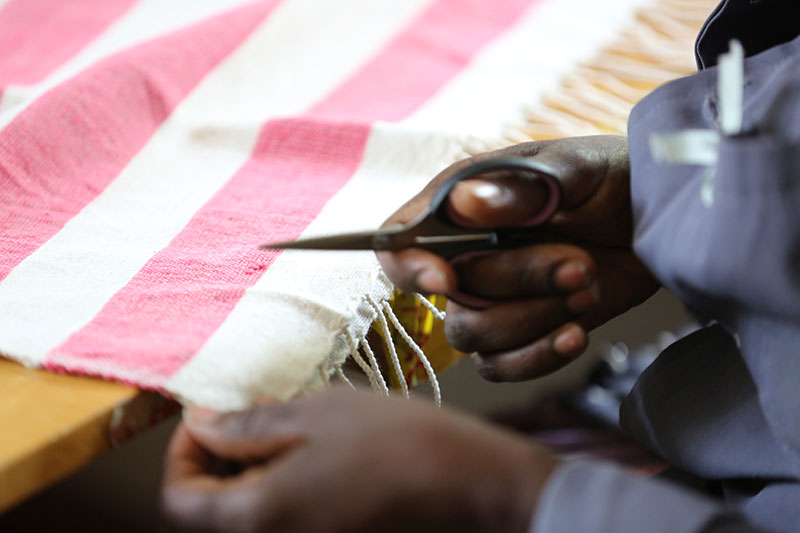A land of otherworldly beauty that for centuries was renowned as an international center of knowledge, Ethiopia has faced devastating economic hardships for decades. Aiming to alleviate some of that hardship is artist collective Sabahar, which expands upon Ethiopia’s storied tradition of weaving whisper-soft cotton products on hand looms. Sabahar was actually started by a Canadian woman in 2006, whose background in development, coupled with her interest in ethical business practices, became a catalyst for the organization’s creation.
Ethiopians still wear hand-loomed cotton clothing for everyday as well as special occasions—all handmade on traditional looms. By applying the ancient skills to new fibers and creating modern designs, the company hopes weavers and spinners will see the value of their trade and pass their skills on to their children.
For centuries in Ethiopia, rural families grew their own cotton, which women would harvest and spin into thread. Next, they would pass on the thread to a weaver, who would transform thread into textiles for the family’s use. Sabahar continues this small-scale production style. When introducing silk, Sabahar realized it could also rekindle the art of natural dye in Ethiopia, which had been lost in the area after synthetic dyes replaced them. Sabahar now works with many plants, insects and herbs found in Ethiopia to make a large array of colors. This commitment to all-natural pigment lends itself to an array of elegant hues, with some items, like scarves, for example, containing a single color, and others utilizing intricate patterning, multi-colored stripes, and contrasting tassels. Despite their abstract appearance, many of the designs used are inspired by ancient—and sacred—Ethiopian designs.
Sabahar’s commitment to reinstating traditional, environmentally sound dyes is a boon for the region, which now uses sustainable, local, and affordable pigments—and also to the customer, who knows each item is made with the most natural products available. Sabahar has many “firsts” to its name: not only is it one of only a few companies in the area that work with silk, but it prides itself on being the only company in the region to exclusively use natural fibers.
